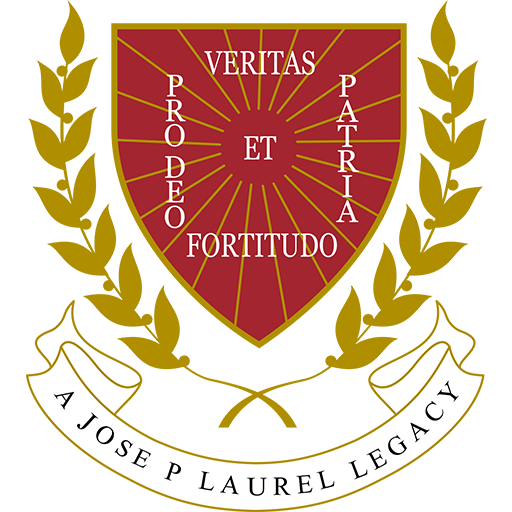The modules described here are the ones that we currently offer and will give you a good idea of the range of subjects that we teach. However as our undergraduate teaching is research led and we constantly review our teaching to ensure that the modules that we offer are up to date there may be changes to module titles and content.
Please note: The modules listed on the website for this programme are regularly reviewed to ensure they are up-to-date and informed by the latest research and teaching methods. Unless indicated otherwise, the modules listed for this programme are for students starting in 2023. On rare occasions, we may need to make unexpected changes to compulsory modules after that date; in this event we will contact offer holders as soon as possible to inform or consult them as appropriate.
First Year
In Introduction to Evolution and Animal Biology you will study the diversity of animal species, and their adaptations, including complex behavioural strategies, reproductive and survival strategies and how these can be understood in the context of evolution. Along with all of the other students on the Biological Sciences programmes you will take other modules (listed below) designed to introduce you to all aspects of this broad subject discipline.
First year modules
Key First Year Module:
Introduction to Evolution and Animal Biology | Watch video - An overview of introduction from the pre-biotic era to Darwin and his impact. Natural selection, the origins of altruism and sexual reproduction, genetic determinants of evolution.
Personal and Academic Skills: Communication and Data Analysis
Personal and Academic Development
Fundamentals of Biochemistry - Fundamental biochemical processes taking place inside cells
Genetics I - Storage of genetic information, gene expression and regulation, mitosis and meiosis, gene linkage and chromosome mapping.
Introduction to Microbiology | Watch video - Broad introduction to microbiology with a focus on infectious disease, covering bacteria, fungi, protists, archaea and viruses
Cell Biology and Physiology - Tissues, organelles, reproduction and development.
Ecological Concepts and Plant Sciences - This module provides a broad overview of the biology of our environment, including topics such as climate change, conservation, ecophysiology and cell biology of plants.
Second Year
The key second year module for zoologists is Animal Biology; this module takes an evolutionary and comparative approach to the study of animal behaviour and its underlying mechanistic control by the nervous system. You choose 4 other optional modules from the list below: Ecology, Cell and Developmental Biology and a field course, particularly Adaptations to Aquatic Environments, are good choices for a zoologist.
Second year modules
Key second year module:
Animal Biology - This module explores how the central nervous system translates sensory stimuli to behaviour. Topics include comparative neurobiology, biological timekeeping, sensory biology, learning and behaviour and others.
Molecular Biology and its Applications - Genetic analysis and gene cloning, DNA fingerprinting and forensics, genomics and computational approaches to genetics.
Communication and Skills in Biosciences - Science communication in videography, writing and speaking, ethics in science, analysis of the scientific literature.
Academic Development and Career Building
Example optional modules include:
Microbes and Man - The impact of microbes on humans, bacteria, fungi and viruses, common themes of infectious disease mechanisms.
Cell and Developmental Biology - Development of multicellular organisms, interaction between cells and the cellular matrix, regulation of stem cell function.
Genetics II - Organisation of genes and genomes, generation of genetic diversity, gene transmission and analysis of problems in transmission and molecular genetics.
Evolution of Humans and Other Animals – The primary aim of this module is to provide students with a comprehensive understanding of comparative animal biology in an evolutionary context.
Human Structure and Function - Human anatomy and how it relates to its function and evolutionary origin.
Critical Issues for 21st Century Ecosystems - Core skills in ecosystem knowledge
Plant Sciences: from Cells to the Environment | Watch video - Plants interact flexibly with their environment. This module explores the cellular and molecular features facilitati ng such interactions, including interactions with parasites. The module introduces the model plant Arabidopsis, and you will design and test hypotheses in specific experiments
Alpine and Glacial Ecology in Norway | Watch video
Field Course: Adaptations to Aquatic Environments | Watch video
All field modules are optional and they each currently have an additional cost of £200 which covers the travel.
Final Year
The final year is made up of a combination of taught modules and independent study. It is here that the link between the teaching and the research in the school is particularly important. You can choose between 3 different project options, a practical project, a literature review project or an education-focused project. All three options carry the weight of 2 taught final year modules and all three train you in skills such as study design, recording & documenting data, ethics & safety as well as data analysis & interpretation.
Final year modules
Project options
Literature review, critical analysis and project proposal
Practical Project
Introduction to Teaching Biosciences in Schools
Example optional modules may include:
Cellular Neurobiology | Watch video - Neuronal function and neural development, synaptic function, transmitter receptors and ion channels.
Adaptation to changing environments - This ecology-oriented module examines behavioural, physiological and molecular mechanisms of adaptation to environmental stress. It examines animals’ mechanisms to respond to changes occurring on varying timescales and over diverse geographic areas
Living in Groups: Collective Behaviour in Animals | Watch video - This module explores features and rules of group behaviour in animals. Introducing formal concepts such as Social Network Analysis, the module defines fundamental rules that govern collective behaviour, and how individuals partake in making and communicating decisions.
Cancer Biology - Regulation of cell division and aberrations in malignant tumours, genetic bases of tumourigenesis, programmed cell death.
Human Evolution - Genetics and genomics, development of bipedalism, development of society and how humans’ activity applies selective pressure on the evolution of HIV.
Molecular and Cellular Immunology | Watch video - Evolution of the immune system, innate immunity, cell biology of immunity, structural basis of discrimination between self and non-self.
Biodiversity and Conservation Management - Examining the scientific basis of conservation, the threats facing biodiversity and how those threats are assessed, why population size is critical and how biodiversity is maintained either in nature or at a backup location.
Conservation Practice: Genes to Ecosystems - Examining the scientific basis for conservation and its genetic foundation.
Molecular Basis of Bacterial Infection | Watch video - Evolution of bacterial virulence, antibiotics and antibiotics resistance, genomic data in analysing pathogenicity.
Evolution of vertebrates
Advanced Topics in Animal Behaviour
Human Health and Disease
Research Methods in Microbiology
Show less










